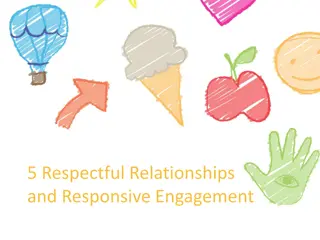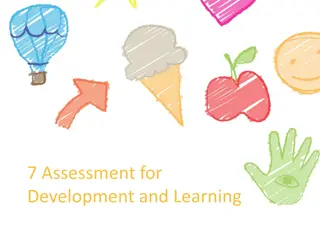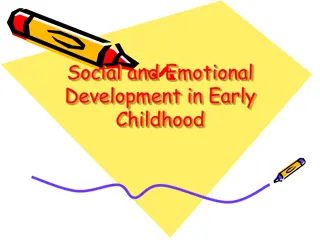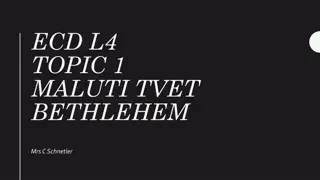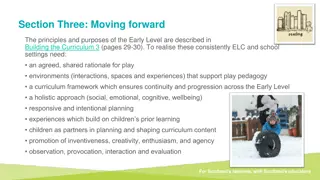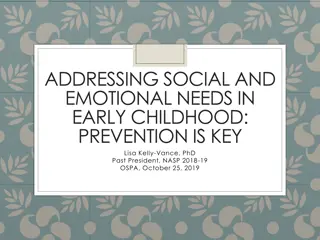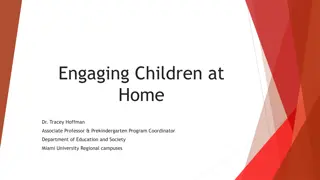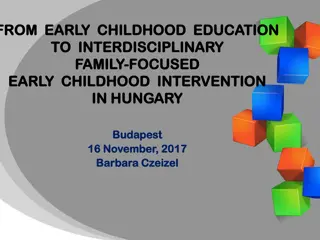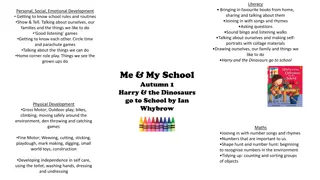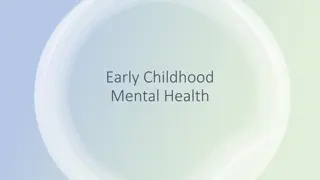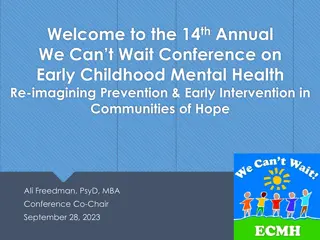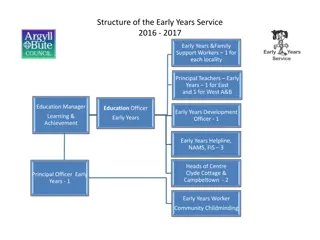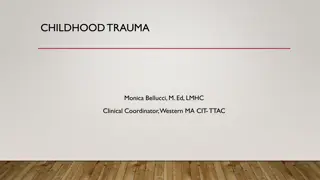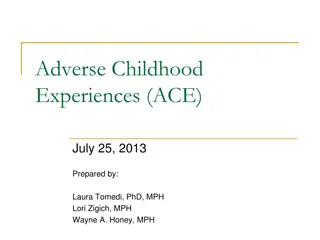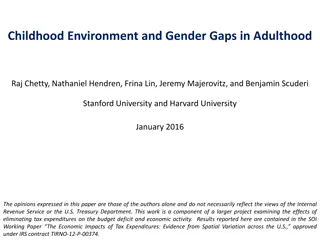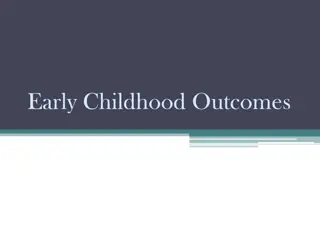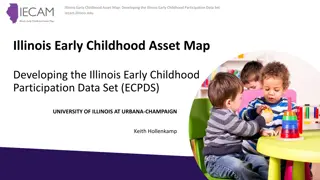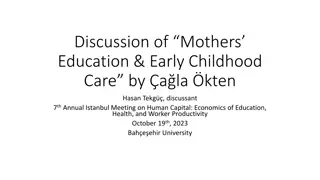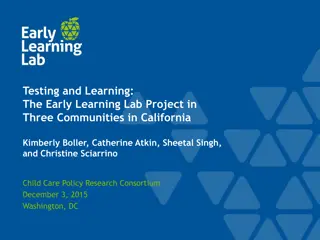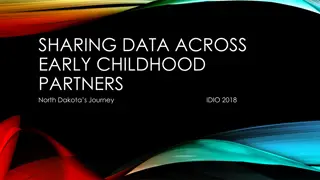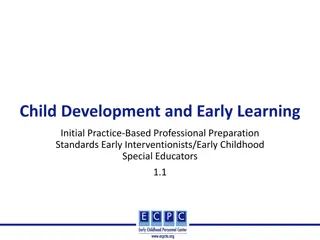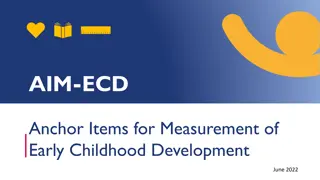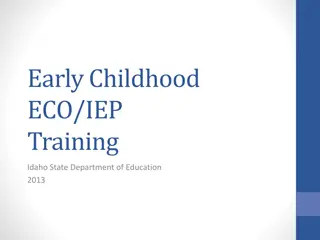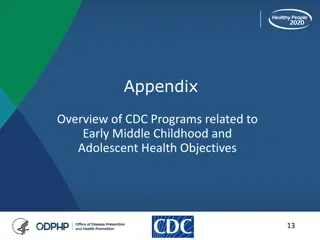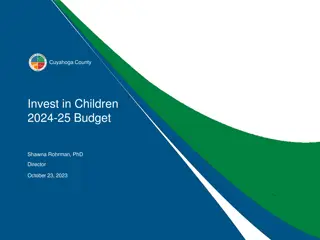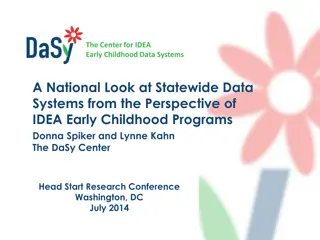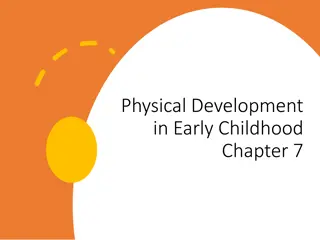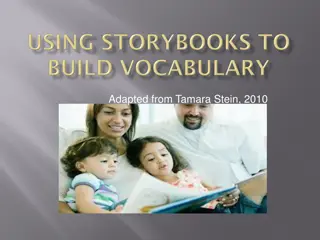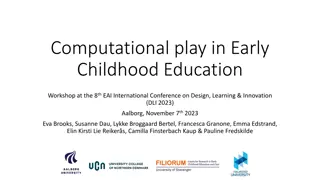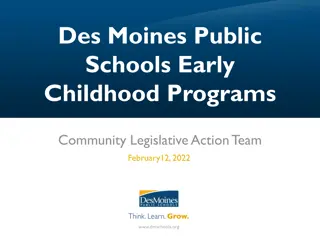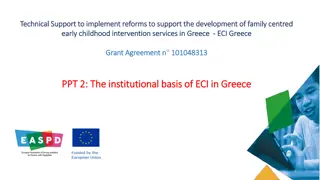The Significance of Curriculum Development in Early Childhood Education_removed
Curriculum development process is vital in education, ensuring a suitable and engaging learning experience for early childhood education. It involves constantly improving and adapting the curriculum to meet the needs of children, bridging the gap between knowledge and reality expectations. Teachers
2 views • 1 slides
Building Human Capital Through Early Childhood Development
Investing in early childhood development is crucial for securing human capital foundations and achieving inclusive, sustainable development goals. Global commitments and frameworks emphasize providing equitable access to quality education and nurturing care to ensure children reach their full potent
3 views • 32 slides
Early Childhood Jobs -The Sector
Are you in search of rewarding positions in early childhood jobs in Australia? Look no further than The Sector Jobs, a dedicated job board exclusively for the early learning and child care sector. \/\/thesector.com.au\/early-childhood-jobs\n#early_childhood_jobs
0 views • 16 slides
Enhancing Early Childhood Education for Improved School Outcomes
Focusing on the significance of early childhood education, this review emphasizes key recommendations for action to enhance school outcomes. Highlighted areas include the importance of making recent reforms permanent, the benefits of two years of early childhood education, the impact of starting sch
2 views • 12 slides
Early childhood education jobs
Are you interested in working in the early childhood education sector Perhaps you have a passion for working with children, or are seeking a career change and want to explore the job opportunities available in your local area. \/\/thesector.com.au\/early-childhood-education-jobs
0 views • 16 slides
Building Respectful Relationships and Responsive Engagement in Early Childhood
Responsive engagement in early childhood education involves building respectful relationships with children and families, emphasizing their strengths and interests. Two case studies highlight the importance of being attuned to children's needs and promoting positive relationships between parents and
0 views • 20 slides
Understanding Assessment for Early Childhood Professionals
Assessment for development and learning in early childhood involves gathering and analyzing information about children's knowledge, skills, and understanding. Early childhood professionals use a variety of tools and approaches to assess children's progress, readiness, and support needs. They value f
0 views • 39 slides
Early Childhood Social and Emotional Development Insights
Social and emotional development in early childhood is influenced by various factors such as family dynamics, parenting styles, peer interactions, and cultural backgrounds. Erikson's stages highlight the importance of initiatives and self-understanding in shaping emotional growth. Parents play a cru
2 views • 35 slides
Importance of Early Childhood Development in Building Strong Foundations
Early Childhood Development (ECD) is crucial for laying a strong foundation for a child's education success. It involves institutions like day care centers, where children engage in age-appropriate activities, and pre-schools with formal teaching programs. ECD focuses on stimulating brain developmen
3 views • 8 slides
Implementing Play Pedagogy in Early Childhood Education
This content emphasizes the importance of starting from the child's needs, interests, and understandings to create high-quality learning experiences in early childhood education settings. It discusses the principles and purposes of the Early Level in Scotland, highlighting the need for a shared rati
0 views • 12 slides
Understanding Social and Emotional Needs in Early Childhood
The early years from birth to age 8 are crucial for developing intellectual, social, and emotional skills that set the foundation for success in school and life. Educating parents about children's emotional capabilities, supporting caregivers, and intervening early can significantly impact children'
1 views • 31 slides
Early Childhood Language Learning and Bilingualism
Early childhood is a critical period for language acquisition and the development of bilingualism. Exposure to multiple languages from a young age has significant cognitive benefits. Bilingualism is a common phenomenon worldwide, with many individuals speaking more than one language. The cognitive i
0 views • 109 slides
Early Childhood Learning Domains: A Comprehensive Overview
Explore the key domains of early childhood learning - Social-Emotional Development, Approaches Toward Learning, Physical Well-Being and Motor Development, Cognitive Development, and Language and Literacy Development. Gain insights into behaviors, skills, and processes crucial for children's holistic
0 views • 13 slides
Evolution of Early Childhood Intervention in Hungary
Early childhood intervention in Hungary has evolved from an emphasis on early childhood education towards an interdisciplinary, family-focused approach. The sectors involved include healthcare, education, welfare, and family affairs. A wide range of professionals, including health visitors, physicia
0 views • 10 slides
National Conference on Early Childhood Data Systems
The National Conference on Early Childhood Data Systems focused on federal investments in developing state-level data systems for early childhood education. The event covered the importance of integrated data systems, challenges, and opportunities for researchers. It highlighted the roles of differe
0 views • 29 slides
Early Childhood Development Program Overview
This comprehensive early childhood development program focuses on literacy, personal, social, emotional development, physical development, and math skills. Children engage in activities such as story-sharing, self-portrait making, outdoor play, number recognition, and fine motor skill development. T
0 views • 9 slides
Overview of OCDEL - Pennsylvania's Early Learning Programs
The Office of Child Development and Early Learning (OCDEL) in Pennsylvania plays a vital role in promoting high-quality child and family services. It oversees various bureaus responsible for early learning opportunities, child care works, certification, and early intervention. PELICAN, an integrated
0 views • 25 slides
Understanding Early Childhood Mental Health and Social-Emotional Development
Early childhood mental health is crucial for children's overall well-being and future success. It involves forming secure relationships, managing emotions, and exploring the world positively. Social-emotional delays can lead to long-term challenges, but early intervention and explicit teaching of sk
0 views • 45 slides
14th Annual We Can't Wait Conference on Early Childhood Mental Health
The 14th Annual We Can't Wait Conference on Early Childhood Mental Health focuses on re-imagining prevention and early intervention in communities of hope. The conference includes valuable sessions, networking opportunities, and acknowledgments of significant contributors in the field. Attendees can
0 views • 12 slides
Organizational Structure of Early Years Service in Argyll & Bute
The Early Years Service in Argyll & Bute for 2016-2017 consists of various key roles like Early Years & Family Support Workers, Principal Teachers, Education Manager, Education Officer, and Early Years Worker. The service aims to provide high-quality early learning and childcare provision, support c
0 views • 6 slides
Understanding Childhood Trauma and Its Impact on Development
Explore the complexities of childhood trauma with Monica Bellucci, M.Ed., LMHC, as she delves into the identification of trauma, adverse childhood experiences (ACEs), types of abuse, and the effects on brain development. Gain insights on trauma-informed approaches and the importance of early interve
0 views • 33 slides
Understanding Adverse Childhood Experiences (ACE) Study and Findings
The Adverse Childhood Experiences (ACE) Study conducted by CDC and Kaiser Permanente examines the impact of childhood trauma on health outcomes. It defines and discusses various ACE factors like abuse, neglect, and household dysfunction. The study reveals that such experiences in childhood can signi
0 views • 30 slides
Impact of Childhood Environment on Gender Gaps in Adulthood
Gender gaps in adulthood, particularly in earnings and employment, have been extensively studied. This paper explores how childhood environment influences these gaps, showing that boys from poor families are less likely to work than girls. The study reveals that gender gaps vary across different are
0 views • 44 slides
Understanding Early Childhood Outcomes and COSFs
Early Childhood Outcomes (ECOs) and Childhood Outcome Summary Forms (COSFs) are essential evaluations mandated by the Office of Special Education Programs. COSFs are completed for children aged birth to six who receive special education services, focusing on social-emotional skills, knowledge acquis
0 views • 56 slides
Developing the Illinois Early Childhood Participation Data Set
The Illinois Early Childhood Asset Map project aims to develop the Illinois Early Childhood Participation Data Set (ECPDS) in collaboration with various organizations and agencies, including the University of Illinois, Chapin Hall, Northern Illinois University, ISBE, IDHS, and ILDS. This initiative
0 views • 7 slides
Importance of Mothers in Early Childhood Education
Mothers play a crucial role in early childhood education, especially in developing countries where many children lack access to formal education. Studies show a strong link between a mother's education level and the time she invests in her child's learning. By examining a 1997 education reform, rese
0 views • 8 slides
Innovations in Early Childhood Education: The Early Learning Lab Project
The Early Learning Lab Project focuses on enhancing education for young children by promoting innovative solutions and supporting teachers and caregivers. Through experimentation, collaboration, and knowledge sharing, the project aims to drive impactful changes in early childhood development practic
0 views • 14 slides
Enhancing Developmental Screening and Referral Systems for North Dakota's Early Childhood Partners
North Dakota's journey in sharing data across early childhood partners involves various agencies such as the Department of Health, Public Instruction, Human Services, and more. Spearheaded by Prevent Child Abuse North Dakota (PCAND), initiatives like the Early Childhood Comprehensive System (ECCS) a
1 views • 9 slides
Understanding Early Childhood Development Theories for Effective Practice
Explore the impact of different theories and philosophies on early learning and development in children. Understand how these theories influence assessment, curriculum, intervention, and instructional decisions. Delve into the nature vs. nurture debate and learn about key theorists shaping Early Int
0 views • 57 slides
Kentucky Department for Public Health Early Childhood Programs Overview
The Kentucky Department for Public Health administers programs using tobacco settlement funds to support early childhood initiatives. The Health Access Nurturing Development Services (HANDS) program focuses on healthy pregnancies, child growth, safe homes, and family self-sufficiency. Funding source
0 views • 11 slides
Understanding AIM-ECD: An Innovative Tool for Early Childhood Development Measurement
AIM-ECD is a comprehensive tool designed for measuring early childhood development, consisting of Child Direct Assessment (DA) and Caregiver Report (CR). It covers key domains like Early Literacy, Early Numeracy, Executive Functioning, and Social-Emotional skills. Implemented in various countries, A
0 views • 11 slides
Early Childhood IEP Training Workshop Agenda
This training workshop organized by the Idaho State Department of Education in 2013 focused on helping professionals in early childhood education identify and collect information needed to complete new Early Childhood IEP practices. The agenda included sessions on screening materials, transition str
0 views • 67 slides
CDC Programs for Early Childhood and Adolescent Health
Overview of CDC programs focused on early childhood and adolescent health objectives includes initiatives like Learn the Signs Act Early, Milestone Tracker App, Legacy for Children Parenting Intervention, ADHD in Young Children, Essentials for Childhood Framework, and more. These programs aim to pro
0 views • 8 slides
Cuyahoga County 2024-25 Budget Overview and Strategic Considerations
The Cuyahoga County 2024-25 budget focuses on investing in children, with a significant portion allocated to child and parent supports, early childhood mental health, and child care services. The strategic considerations highlight workforce challenges, early childhood education, and plans to shift t
0 views • 5 slides
Analysis of Early Childhood Data Systems in IDEA Programs
An examination of statewide data systems in IDEA Early Childhood Programs was conducted through surveys and assessments. The study reveals the methods used, questions asked, respondent details, and key results regarding the data systems, workforce, and data elements present in Part C and 619 program
0 views • 14 slides
Early Childhood Physical Development Overview
Physical development in early childhood encompasses growth in height and weight, brain development, gross motor skills, and fine motor skills. Children's bodies change significantly between ages 3 to 6, with notable improvements in motor skills and cognitive abilities. Gross motor activities such as
0 views • 15 slides
Importance of Vocabulary Development in Early Childhood Education
Understanding the crucial role vocabulary plays in a child's development, this content delves into the impact of vocabulary exposure at different ages. It emphasizes the significance of selecting appropriate reading materials, utilizing effective strategies, and fostering language skills early on to
0 views • 36 slides
Exploring Computational Play in Early Childhood Education: DLI 2023 Workshop
The workshop at the 8th EAI International Conference on Design, Learning & Innovation (DLI 2023) in Aalborg aims to delve into the application of computational play with mathematics in early childhood education. Through live sessions and discussions, opportunities and challenges in utilizing computa
0 views • 7 slides
Enhancing Early Childhood Education: Des Moines Public Schools Initiatives
Explore the importance of preschool education, funding overview, building an equitable system, and challenges faced by Des Moines Public Schools' Early Childhood Programs Community Legislative Action Team. Discover the impact of programs like FastBridge Reading and Math, preschool funding distributi
0 views • 14 slides
Supporting Family-Centered Early Childhood Intervention Services in Greece
The grant agreement aims to implement reforms supporting the development of family-centered early childhood intervention services in Greece. It emphasizes the human rights and child rights framework, highlighting the legal and political basis of early childhood intervention in the country. The conte
0 views • 7 slides





